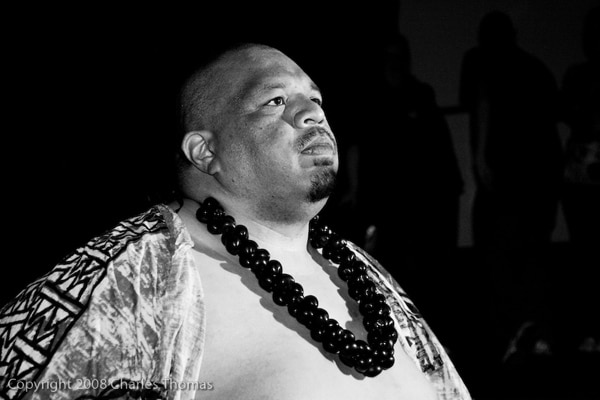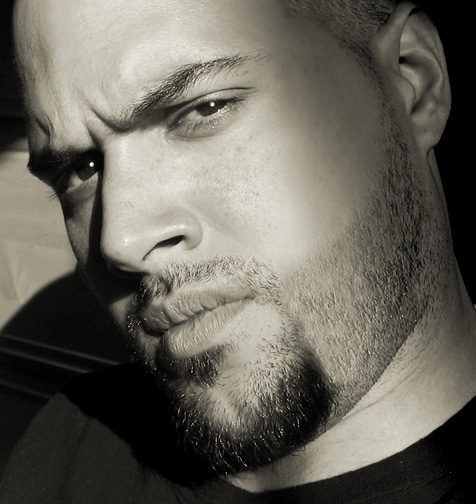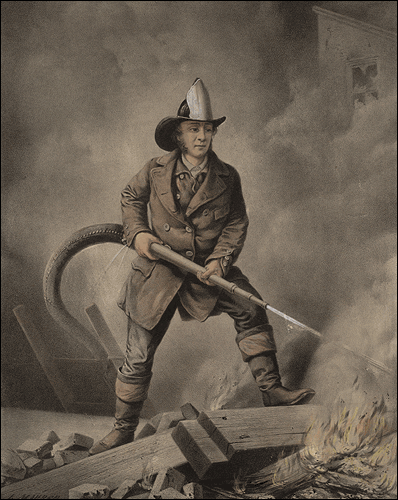
Once again we return to our So You Want My Job series, in which we interview men who are employed in desirable man jobs and ask them about the reality of their work and for advice on how men can live their dream.
Today we feature a singularly interesting and unique job, that of the professional gambler. Many a man has gambled in his day, whether with real money or cookies. But Christatos Aristad was able to parlay his talents in gambling into a real profession, a lucrative one at that. While some may see professional gamblers as a bit shady, Mr. Aristad is of an older school of gambler, and is the consummate gentleman. Recently retired, he’ll be penning a series of articles for AoM on the basics and etiquette of a variety of games.
1. Tell us a little about yourself (Where are you from? How old are you? Where did you go to school? Describe your job and how long you’ve been at it, ect).
My name is Christatos Aristad. I was born in London, and I am 52 years old. I went to Cambridge entirely as a product of family connections and spent a completely unspectacular 4 years there mostly drinking and gambling with my fellow students. I then made a go at a Medical Degree to complete a childhood dream of being a doctor and discovered that my patented combination of drinking and gambling did not work at all in the more difficult atmosphere of graduate degrees and dropped out in my first year. I picked up gambling professionally about half a year later at the age of 24 and have been doing it ever since. As you can imagine, there isn’t really a formal education for gamblers. I am currently in the process of retiring, and am trying to figure out where to settle down.
2. Why did you want to be a professional gambler? When did you know it was what you wanted to do?
When I completely flunked my way out of graduate school. I was only ever good at one thing, gambling. I wanted to be a doctor, but I was good at gambling. After I flunked out of medical school, and realized it was because I was going to make a terrible doctor, I decided to try gambling. After playing in small games and small casinos for awhile, I had enough to try larger games. Eventually, I got rung up by a man with a pocket full of cash and a game he wanted to win who didn’t think he could do it on his own. He paid my stake, I played the game, and we both walked away quite happy. That game got me invited to a respectable London betting parlor, The Portland Club, which got me into the scene. After that, I accrued all the contacts you needed in those days to play your way to a hot meal, a firm roof and a clean suit.
3. Many men gamble for fun. How did you move from being a recreational gambler to making it your profession?
A combination of necessity and pure enjoyment. There was no single moment where I just slid into being a professional gambler, but there was a point where I realized I didn’t have any other source of income. At that point, I decided to stick with making money through gambling and keep leaching off of the rich men with dreams of poker, bridge, backgammon, euchre and craps and just keep going. Thinking about it, I guess it’s like being in a band except with shorter hair, no instruments, and regular bathing. The second part is access. Getting the invitation to the Portland Club was, for me at least, the golden ticket. Without that, I think I probably would have settled down and stayed local. But after meeting the people I did in The Portland Club and making the connections I did, especially through the man who invited me, everything else became possible.
4. You often gambled with other people’s money. Will you explain how that worked and how you went about finding people to back you?
The first question implicit in that is how does the backer and booking agent relationship work, and the truth is that it works like any other job where you have a backer; you just have to look harder and in different places. People have money and want to invest in games and players, booking agents act as middlemen and talent scouts, and players act as talent. The problem is getting discovered. To be honest I’m not sure how that works today. When I was playing, it was just a matter of being a poorer but better player, playing for wealthier men who could barely hold their cards, and staying in the business as it evolved. Today the business is changing, as tournaments are becoming more popular among emerging talent, despite the fact that they hold less money over the long term and that people are committing to poker and blackjack over baccarat and craps.
The second part of that answer would probably take a book to explain, and more experience than I have if you wanted an idea of how it works beyond how I do it. My booking agent for most of my career has been my dear friend, Albert Hull, the man who swung me an invitation to the Portland Club. Albert has made his career, and much of my own, finding games for me to play, or money for me to play with. Generally, one of us gets wind of new money in the system, or a juicy game down the pipe, and we start our engines. If new money is in the system, Albert, being a real blue blood, and a man with a legitimate job and some actual connections, woos the financier until they agree to open their wallets and give us a taste, and I just grab the nearest chair with a deck of cards or handful of dice in reach. If a game is in the pipes, Albert taps one of our reliable money people, and I start making waves about wanting a place at the table. If my name checks out, my check clears, and I don’t come across as a complete ass to the people running the game, we’re steady.
5. What is the best part of the job?
The rush. I have done a lot of things in my life other than gamble, but nothing compares to gambling with real gamblers. The rush of slowly coming to control the game. The moment of realization when you know you are in charge, the mathematical reduction of each players stock of chips. The steady duel between you and the other winner. Each of the fine moments that remind you why you deserve to be sitting at that table. Winning is really a letdown after that steep and steady high. If I had my way the game would never end. But if you draw it out forever and never go for the throat, you lose control, and they eat you alive. The price of the high is that YOU have to end it. A rather terrible realization when it comes to you, really. But then it is that moment of realization that separates the professionals from the hustlers. A professional enjoys what he does, but knows at the end of the day that he has to keep what he does about business. For all the pleasure he derives from it, if he loses sight of the bottom line, he is digging his own grave. A hustler never sees what they are doing for what it is. They think you can balance out the fun and the money, and keep riding the rush. They are wrong. In this business, just as in life, you must grow up. For a time yes, you can play for fun and money, and live for rush after rush, but after a time, if you don’t grow up, you are living on the edge of a razor every time you play. Because in every single game there is that critical moment when the fun must end and business must begin, and you must put the competition away. A hustler never learns to see that moment for what it is and wins on luck or skill. That is until they meet an old hand who knows the game well enough to survive long enough to learn their style and drive them into the ground once they run out of tricks. I have seen it happen at least half a dozen times, and it is never pretty to watch a hungry young kid get bled dry by someone who doesn’t really need the money, but sees it as more of a lesson than anything else. I guess it is a commentary on the job that the best part is a double-edged sword.
6. What is the worst part of the job?
Playing sports. Horse racing, college games, professional, whatever. Whenever a backer came to Albert or me with a fat stack of money and told us to make him a mint off the next season of his favorite sport we died a little inside. Playing a game, you can only control 50% of the variables at most. But betting on sports, you control nothing. All you can do is play the odds and that’s just luck. And luck is the biggest bitch in the world. She will leech you dry and then bury you alive under a pile of flesh eating beetles before building an explosive broken glass factory on top of the pile, then burn it down.
The things I have seen luck and chance do to gamblers over the years are damn ugly. Look at a betting pool sometime, and recognize the math that makes it worth your investment. If 200 players invest $50.00 in the pool and only 5 win any money, at a graded rate, then 195 lose their entire stake entirely on non-controllable factors for a non-computable chance of winning 1 out of 5 graded prizes that depend on 195 losers for their value. That is the nature of luck. The tiny percentage of winners are chosen randomly by statistics to suck every penny out of you, the vast majority of players’ pockets, so that the prize at the end of the tunnel is large enough to keep everyone interested and playing. And the word for you, the vast majority of players by the way, is losers. All gambling is dependent on this system, sports betting is just more direct about it so I can’t squeeze my way out of confronting it. It makes me feel like a very bad person. In a game, you can say with some confidence that everyone there is in control and knows the score, but with sports, the entire system is crooked from start to finish.
7. What is the biggest misconception people have about the job?
That it is just numbers. Counting cards, knowing the odds, is really not the point. If you can’t read people, you are going to be wearing a comically large barrel in a very short period of time. What’s more, there is no such thing as a “tell.” People do not play an entire game of poker and reveal themselves with a single tick unless they are really, really bad liars. They have a pattern, a series, a system of ticks and twitches and so on that tell you a lot more than, GOOD! BAD! LIE! TRUTH! If you don’t know people and how they work, you are out of money very quickly. My impression for awhile has been that people think if you sat the internet down at a table that it would be some kind of Rainman winning machine. It would not. Pattern recognition and math are fine and good for beating the house, but for a professional, beating the house isn’t the issue. The issue is beating people who already own the house, a cabin, and several lovely vacation spots. These people don’t need to worry about the odds. They need to worry about you. And you them. It is like playing cards with wolves. They smell fear.
8. What is the work /family/life balance like?
You get one, then the other. There is no balance. When the game is on and the backing is in, you are on a plane. The people who set up the game, and the people who pay for your ticket, do not care in the slightest if your wife is pregnant, your daughter is teething, or your son is in his school’s presentation of the “Parade of Nutrition” or whatever the heck children do. They either find someone else, or they don’t play. I have known some players to have a family, but I wouldn’t recommend it. That hollow look in a man’s or woman’s eye when they sit down at the table during their child’s birthday is probably the saddest thing in the world, and no one can play worth a damn in that condition. It hurts to win when you know the score, and I have always tried to tell them to back out if I knew, but most don’t. A job is a job, and back out even once, and they might never call again. This is not to say that you cannot date, but if you have any intention of forming a meaningful relationship before you retire, I would suggest a more family friendly line of work, like mobster or deep sea diver.
9. Some would say that gambling is not an “honorable” profession. How would you respond to such critics?
I would agree. On the other hand, I never sit at a table with anyone who doesn’t want to be there. The truth is that “real” professionals aren’t usually the kind of people who play at a public table at Vegas with Bob from Idaho who’s betting the farm on that last hand of Blackjack. We do not play at $5.00 tables. We do not sit at $500.00 tables. Unless there is a lack of space, we sit in private rooms, and we play with no limit. We play with big money and know what we are doing. If someone at the table stakes themselves and places a bet that they can’t afford to lose, I have no pity. This is not a game for fun, this is a game for profit, and any good businessman knows you should never risk going into debt you can’t handle. The reward should always outweigh the risk, and no reward in gambling outweighs getting beaten by a bookie or losing your house on the roll of a dice.
And as for people who gamble themselves away in the ordinary casino, I have always had reduced pity for them. Gambling is not a way to make money unless it is the way you normally make money. It is a good way to have a good time and lose your shirt, but anyone who has taken a statistics class know that even if the casinos didn’t tilt the odds in their favor, the odds would already be in their favor, even if you were a statistically ideal player making perfectly rational choices and bets every time. And I have met exactly one person who meets that definition, and I do not know that I would call that young man a person so much as a freak. Casinos know they have you fighting an uphill battle the second you step in. But if you should ever go gambling and earnestly want to make money, all I ask is that you figure out this piece of advice, and it’s importance before you do: Play the other players, not the house.
10. Any other advice, tips, or anecdotes you’d like to share?
Quite a lot actually. But I will break it down to three pieces of advice, and anecdotes and tips on request if I deem them reasonable and that is within the rules of our generous host. These are of course, my opinion, and not universal rules.
Never bet a penny more than you can afford to lose. There is no reward in gambling worth going into debt with the people who are willing to let you play. Only bet money you don’t need. How do I define don’t need? Unless you are a professional I would strongly recommend against gambling with anything more than 15% of your net disposable income for the month. That is the money you don’t need. A fraction of the money you have for frivolities, that month. If you have to save up for months to make big bets, that is a message from God, Allah, Vishnu, Buddha, your Banker, or whoever, that you should stick to the $5.00 tables and keep it tight. Fun should never be so fun that it costs you or a family member something you will regret. Regrets are for love and drinking, nor for gambling.
In a card game containing 5 players, no matter the game or rules, after 1 hour of play or ten hands there are 2 winners and 3 losers. If you don’t know who the winners are, you are one of the losers. If you are one of the losers, walk away. The winners are the winners because they are better than you, not because of luck. Luck never lasts long enough to save you from yourself. If you are one of the winners, try to determine if you are the big winner or the small winner. If you are the small winner, play it safe. If you are the big winner, don’t let it get to your head, or you will magically become the small winner, and eventually a loser. These proportions expand pretty well, but let me simplify the principle. There is always a steep ratio between winners and losers in any game. If you don’t know you’re a winner, you’re a loser. If you’re a loser, count your losses and leave.
Don’t let it ride. Don’t ever, ever, ever, ever let it ride. Pocket the winnings, and then decide on a new bet. The dice don’t like you, the cards aren’t magic, you aren’t lucky tonight, and neither is your girlfriend/boyfriend/that cute guy/girl you just met at the bar who you think might have a thing for you who’s gambling with you. You will thank me later. And if you don’t, shame on you for not listening to your mother.
Tags: So You Want My Job






